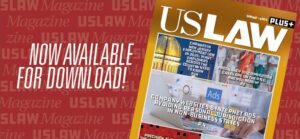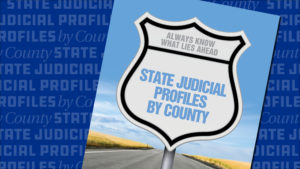USLAW NETWORK names Gerber Ciano Kelly Brady LLP of Buffalo, New York, as the newest member of… Continue Reading
John Queenan and Jeff Ehrhardt win motion for summary judgment in civil rights, Fourth Amendment case
POSTED DECEMBER 20, 2024
 Rivkin Radler LLP (Albany, NY)
Rivkin Radler LLP (Albany, NY)
John Queenan and Jeff Ehrhardt win motion for summary judgment in civil rights, Fourth Amendment case
Rivkin Radler represented two New York State Troopers, who were individually sued via 42 U.S.C. 1983, in the Southern District of New York, for alleged violations of the plaintiff’s Fourth Amendment rights, including alleged wrongful seizure/excessive force, wrongful death, failure to intervene, and related state claims as a result of a fatal encounter. The Troopers received a call of a man menacing someone with a knife in a restaurant parking lot, who turned out to be the plaintiff/deceased. When they arrived, the Troopers found the plaintiff in the back of the building, which also had security cameras that recorded much of the encounter.
The New York State Attorney General conducted an investigation under the Executive Law and cleared the Trooper of any wrongdoing. AG Report: https://ag.ny.gov/sites/default/files/oag_report_-_lopez-cabrera.pdf).
The defense primarily relied upon by the Troopers was that the interaction and resulting encounter was a justified response to the deceased’s repeated aggressive and threatening behavior, continuous refusals to remove his hands from his pockets, which were concealing a weapon, and approaching the Troopers contrary to lawful direction. Police practice and use of force experts were also engaged. Rivkin Radler moved for summary judgment in March 2024. On September 9, 2024, Judge Colleen McMahon granted the motion for summary judgment in full. Lopez v. Wolensky, No. 20-CV-7798 (CM), 2024 WL 4123524 (S.D.N.Y. Sept. 9, 2024). The Court found that the Troopers’ actions were justified under the Fourth Amendment, that lesser means of force were not required under the law on the facts, and that there was no constitutional violation. Additionally, the court accepted Rivkin Radler’s arguments that the plaintiff’s expert opined on legally irrelevant and, therefore, inadmissible issues and that the Troopers established entitlement to qualified immunity.











